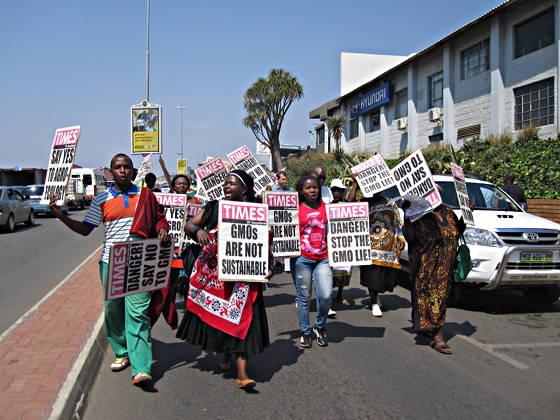Latest Resources

16 March 2021
Multiple shocks, agribusiness feudalism and the monopolisation of peasant territories: a view fro...
Por favor, haga clic aquí para el español This is the fourth of six publications in the ACB’s multiple shocks in Africa series: ecological crisis, capitalist nature & decolonisation for human and ecological liberation. Given our internationalist commitment, Multiple shocks, agribusiness feudalism and the monopolisation of peasant territories: a view from Ecuador on agrobiodiversity and […]

12 February 2021
SAN Petition to Stop ReconAfrica’s Drilling operations in the Okavango
Indigenous Peoples and Africans are under threat from Recon Africa and Big Oil and Gas Development Permits have been issued to prospect, drill and ultimately extract oil and gas over 8.75 million acres of the Kalahari Desert in Namibia and Botswana extending to the south eastern banks of the Okavango River and Okavango Delta. The […]

1 December 2020
Multiple shocks and the Ebola and COVID pandemics in West and Central Africa: extraction, profite...
Veuillez cliquer ici pour le français. We are pleased to present the first discussion paper in our “Multiple Shocks in Africa Series”. The tragic story of the Ebola pandemic in West Africa, and the Ebola epidemic in the Democratic Republic of Congo (DRC) in particular, is not just one of disease emergence. It is fundamentally […]

29 May 2020
Profiteering from health and ecological crisis in Africa: The Target Malaria project and new risk...
Cliquez ici pour le français The ACB shares this research paper with you, of the wave of ‘Trojan horse’ second-generation genetic engineering strategies targeted at, inter alia, malaria in Africa, at a time when the COVID-19 crisis is fracturing the myth that global health expertise is the domain of North America and Europe. Global health […]

10 September 2018
Report from SADC regional farmer speak out on farm input subsidy programmes
Rural Women’s Assembly (RWA) and African Centre for Biodiversity (ACB) jointly hosted a meeting of farmers and civil society organisations (CSOs) in August 2018 to share views and experiences on farm input subsidy programmes (FISPs) and public sector support for agroecology in the region. About 140 participants from Namibia, South Africa, Zimbabwe, Mozambique, Zambia, Malawi, […]

4 June 2018
The debate on GMOs in Africa rages on, this time in Tanzania
A heated public debate on genetically modified organisms (GMOs) ensued during a seminar organised by MVIWATA – a network of smallholder farmers – in Morogoro, Tanzania. The meeting took place on 12 May 2018 and was attended by more than a hundred people, including parliamentarians and high-level government officials. The event, which was intended only […]

23 February 2018
Face to Face: African CSOs confront ARIPO, SADC over Draconian Harmonised Seed Laws
The ACB has the pleasure of sharing with you a short 5-minute video of the Southern African seed law and seed sovereignty dialogue, Face to Face: African CSOs confront ARIPO, SADC over Draconian Harmonised Seed Laws, co-hosted by the ACB in partnership with PELUM-Zimbabwe, which took place in Harare, Zimbabwe, 28-30th June 2017. Please watch […]

15 January 2018
Status report on the SADC, COMESA and EAC harmonised seed trade regulations: Where does this leav...
The Status Report on the SADC, COMESA and EAC harmonised seed trade regulations: Where does this leave the regions’ smallholder farmers? researched and written by Linzi Lewis and Sabrina Masinjila of the African Centre for Biodiversity (ACB), provides a brief background and status update on efforts by regional economic communities to harmonise seed trade and […]

15 December 2017
Harmonised corporate seed laws in Africa: Where does this leave smallholder farmers?
The expansion of the corporate seed market, embedded in the green revolution agenda in sub-Saharan Africa is progressing very fast. This expansion is going hand in hand with regional policies and regulations – in a process also known as seed harmonisation – that will enable facilitate trade across national borders. This has been the case […]

18 October 2017
The GMO crisis in Swaziland
Swaziland is under enormous pressure to introduce genetically modified organisms (GMOs) into the country’s farming system. This pressure is coming not only from Monsanto but also from farmers and some sections of the public who have been fed a great deal of misinformation and hype by the pro-biotech machinery. The farmers, acting on incomplete and […]
